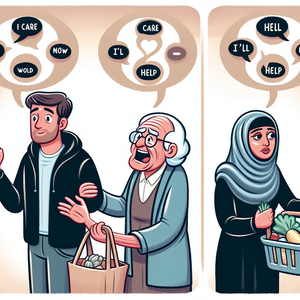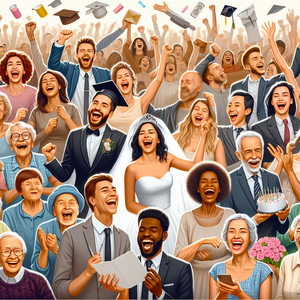Breaking Down the Pay Gap: WNBA vs. NBA

One of the most significant factors influencing salary disparities between the WNBA and NBA is the overall revenue generated by each league. The NBA, established in 1946, has cultivated a robust global brand, leading to lucrative television deals, sponsorship agreements, and merchandise sales. In contrast, the WNBA, founded in 1996, has been diligently working to build its brand and fanbase. According to a report from the Sports Business Journal, the NBA generated approximately $8 billion in revenue in the 2020-2021 season, while the WNBA's revenue was reported at around $60 million. This stark difference in financial resources directly impacts player salaries, as the league's revenue ultimately dictates how much can be allocated to player compensation. The average salary for WNBA players is around $120,000, whereas NBA players' average salaries hover around $8.5 million. Such discrepancies illustrate not just a difference in earnings but also highlight a lack of financial parity that affects players' livelihoods and career choices. Many WNBA players supplement their incomes by playing overseas during the off-season, a necessity that reflects the economic challenges they face.
Sponsorship and Media Coverage
The disparity in media coverage and sponsorship deals also plays a pivotal role in the pay gap. The NBA enjoys extensive coverage across major networks and platforms, with regular season games broadcast nationally and internationally. This visibility attracts lucrative sponsorships from major brands eager to associate themselves with the league's star players. In 2021, the NBA secured a record $24 billion television deal that will keep its games on air through 2034. Conversely, the WNBA has historically struggled to secure similar levels of media attention and sponsorship deals, which limits its revenue potential. While recent efforts by networks like ESPN and CBS Sports to showcase more WNBA games have improved visibility, the league still faces challenges in attracting consistent sponsorship revenue comparable to its male counterpart. For instance, in 2021, the WNBA announced a landmark partnership with AT&T, which included significant investments in marketing and promotions. While this partnership marked an important step forward, it highlights the ongoing struggle for the league to compete for sponsorship dollars against the NBA's well-established partnerships with brands like Nike and Gatorade.
Audience Engagement and Cultural Perception
Audience engagement is another crucial component contributing to the pay gap. Historically, the NBA has cultivated a massive global fanbase that engages with the sport through various channels, including social media, merchandise purchases, and attendance at games. The league's star players, such as LeBron James and Stephen Curry, have become household names, further driving interest and investment. In contrast, the WNBA has faced challenges in building a similar level of engagement. Despite the talent and dedication of its athletes, many fans remain unaware of the league's players and teams. This lack of visibility can be attributed to cultural perceptions surrounding women's sports, which have often been undervalued compared to their male counterparts. However, recent years have seen a shift in attitudes, with increased support for women's sports and a growing number of fans tuning in to WNBA games. For instance, the 2021 WNBA Finals achieved a viewership increase of 51% compared to the previous year, suggesting a burgeoning interest in the league. This trend indicates that with more visibility, audience engagement can increase, potentially leading to higher revenues and, consequently, better player compensation.
The Role of Advocacy and Change
The fight for equitable pay in sports is not only about financial compensation; it is also about recognition and respect. WNBA players have been at the forefront of advocating for equal pay and improved conditions, utilizing their platforms to amplify their voices. The collective bargaining agreement signed in 2020 marked a significant milestone, resulting in the highest average salary in league history, better benefits, and increased investment in player marketing. As the conversation surrounding gender equity in sports continues to evolve, the impact of advocacy cannot be understated. High-profile players like Sue Bird, Maya Moore, and Breanna Stewart have championed the cause, leveraging their influence to call for change. Their efforts have not only raised awareness about the pay gap but have also inspired a new generation of athletes to advocate for their rights. Moreover, organizations like the Women's Sports Foundation and initiatives like "We Are All Women" are working to empower female athletes, promoting equity and fairness in pay and representation across all sports.
The pay gap between the WNBA and NBA is a multifaceted issue rooted in historical, economic, and cultural factors. While the disparities remain stark, there is a growing movement advocating for change, driven by players, fans, and organizations striving for gender equity in sports. As the WNBA continues to evolve and gain recognition, the hope is that the financial landscape will shift, offering its athletes the compensation they rightfully deserve. Closing the gap is not merely about numbers; it is about valuing the contributions of female athletes and recognizing their place in the world of sports. With increasing visibility, support, and advocacy, the future holds promise for a more equitable landscape in women's basketball. As fans, advocates, and stakeholders rally behind the cause, there is potential for meaningful change that could redefine the narrative of women's sports for generations to come.
Sports Marketing Manager
NBA, WNBA, sports agencies, Nike, Adidas
Core Responsibilities
Develop and implement marketing strategies to increase brand visibility and audience engagement for sports teams or leagues.
Manage sponsorship relationships and negotiate contracts with brands to maximize revenue opportunities.
Analyze market trends and consumer data to inform promotional efforts and enhance fan experiences.
Required Skills
Strong knowledge of digital marketing strategies and social media engagement.
Excellent communication and negotiation skills for effective collaboration with sponsors and media outlets.
Experience in data analysis to track campaign performance and ROI.
Sports Data Analyst
NBA teams, sports analytics firms, performance consulting agencies
Core Responsibilities
Collect, analyze, and interpret performance data to provide actionable insights for teams and coaches.
Utilize statistical software and programming languages (e.g., R, Python) to model player performance and game strategies.
Prepare reports and visualizations to communicate findings to stakeholders, including coaching staff and management.
Required Skills
Proficiency in statistical analysis and data visualization tools.
Strong understanding of basketball strategies and metrics used to evaluate player performance.
Experience with machine learning techniques for predictive modeling.
Sports Journalist
Sports networks (ESPN, CBS Sports), online sports publications, newspapers
Core Responsibilities
Research, write, and report on sports events, player interviews, and industry trends for various media outlets.
Develop engaging storytelling techniques to cover women's sports and advocate for gender equity in sports reporting.
Maintain a strong social media presence to engage with fans and promote articles.
Required Skills
Exceptional writing and communication skills with a keen eye for detail.
Knowledge of the sports industry, particularly women's sports and related issues.
Ability to work under tight deadlines and adapt to rapidly changing news cycles.
Community Relations Coordinator
NBA and WNBA teams, non-profits focused on sports and community engagement
Core Responsibilities
Develop and manage community outreach programs that promote the team's brand and foster relationships with local organizations.
Organize events and initiatives that support youth sports and gender equity in athletics.
Coordinate player appearances and community service efforts to enhance community engagement and support.
Required Skills
Strong interpersonal and organizational skills to effectively manage community partnerships.
Experience in event planning and public relations strategies.
Knowledge of social issues surrounding gender equity in sports and community development.
Player Development Coach
WNBA teams, training academies, sports performance centers
Core Responsibilities
Work closely with athletes to enhance their skills, performance, and overall career development both on and off the court.
Design individualized training programs that address players' specific needs and goals.
Collaborate with coaching staff and sports psychologists to support players’ mental and emotional well-being.
Required Skills
Extensive knowledge of basketball techniques, physical conditioning, and sports psychology.
Strong communication and motivational skills to effectively mentor players.
Previous experience as a player or coach at a competitive level is highly beneficial.


